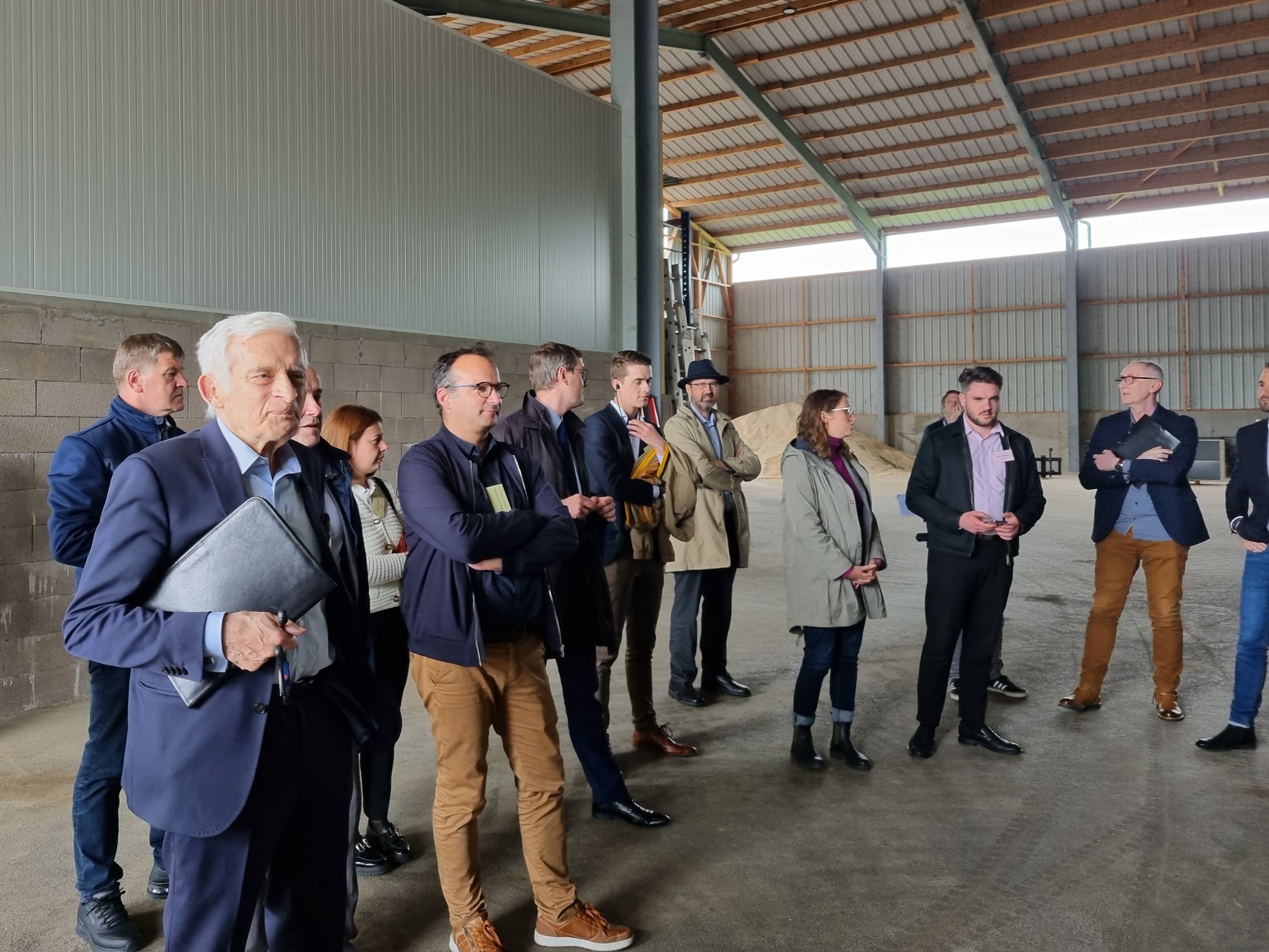Renewable gas: a solution for regions on the road to net zero – European know-how for a fast, resilient and affordable transition
On the road to our climate-neutral economy was more than ever the appropriate term to describe the visit and the opportunity to explore the wide-ranging solutions offered by renewable gas deployment.
After the introduction to the visit by the EEF President Jerzy Buzek, our co-hosts took the floor to give an overview of the topics linked to the site visits: Morgane Goret-Le Guen, Senior Policy Officer at GD4S, stressed the critical role of gas DSOs in supplying natural gas and increasingly larger amounts of renewable gases to industries and households. Giulia Cancian, Secretary General at European Biogas Association, gave an overview of the biogas production and synthesis process and underlined the importance of developing biogases not only for decarbonisation but also for helping the rural economy and the management of waste. Europe is producing around 18.5 bcm of biogases of which around 3.5 of biomethane in more than 1300 plants. Hans Korteweg, Managing Director at COGEN Europe, touched upon the micro-cogeneration (micro-CHP) generating heat and electricity near the point of consumption and functioning with different fuels, including renewable gas. Mathieu De Carvalho of TotalEnergies held a presentation explaining the functioning of retail green gas contracts. A stable regulatory framework is crucial to allow investments in biomethane production, since the EU targets mandate for 35 bcm of biomethane by 2030, thus implying a ten-fold increase compared to nowadays.
At the BDR Thermea R&D centre in Mertzwiller, Jordi Mestres, Managing Director introduced the core business of the group, consisting of producing heat pumps, gas boilers and water units, but also developing digital and control equipment allowing their integration into the future smart grid. Mr Mestres stressed that decarbonisation passes through innovation and that the key approach to achieving the climate goals is technological neutrality. John Cockburn, Head of Business Development and Product management outlined the group’s technology strategy and Olivier Mutschler, Head of Business Development and Product management for Residential solutions, provided a concrete example of hydrogen and hybrid heat pump deployment in residential areas across Europe.
Marieke van Amstel and Michiel van Dam of GD4S gave the example of the current situation at the gas distribution level in the Netherlands and touched upon the numerous congestion problems and the potential solutions.
During the visit of the R&D facilities, we had the opportunity to see the chambers where particular climate conditions are recreated or noise level are controlled in order to test the heating and cooling technologies of heat pumps and subsequently, put on the market the best options for the consumers.
The participants headed off to the second site, the biomethane production facility of Agriculteurs Biomethane Haguenau (ABH), a limited liability company created in 2016 to carry out a project aimed at developing an organic matter recovery unit in Northern Alsace. ABH SAS is composed of 15 farmers who decided to collectively lead this project.
Régis Huss, President of ABH, and Denis Naas, President of the Alsace Chamber of Agriculture, gave an in-depth presentation of the methanisation process and explained to us the way they had to reinvent themselves for this project. In parallel to agriculture, agronomy is key in their project. They outlined the benefits that renewable energies bring to agriculture and the opportunities that the agricultural sector can provide to the energy autonomy of rural areas.
A visit to the specific facilities involved in each step of the methanisation process followed. Once the feedstock (solid and/or liquid) is collected and made ready for digestion, four stages, (hydrolysis, acidogenesis, acetogenesis, methanogenesis) are needed to obtain biogas. The resulting biogas needs to be purified before being injected into the gas grid.
This visit was an eye opener on the potential to reach our net-zero by rethinking our economy and providing state of the art, energy efficient appliances. Throughout the visit, the key takeaway was that all technologies are needed and that cooperation between stakeholders, production of gas, technologies, R&D, distribution and transmission grid and in the end, consumers, is key. There are challenges and hurdles to be overcome to reach our net-zero but as was explained to us, the energy transition is really happening with a shift in consumer behaviour and industries supply chains.



